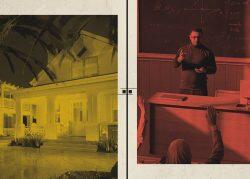The South San Francisco Council wants voters to free it of restraints standing in the way of developing social housing.
The council unanimously approved a ballot measure for November that would allow the city to develop, build or acquire 1 percent of the units in the city year over year for the next 30 years, The Mercury News reported. Mayor Mark Nagales said the council would consider upping the 1 percent.
Currently, the city must depend on developers and investors to create housing. Under the state constitution, voters must first approve any low-rent housing project proposed by a federal, state or other local entity. Low-rent housing projects are considered any urban or rural housing for low-income people paid for with public money.
“We’ve only been relying on the private market to meet our housing needs and that hasn’t worked,” Councilman James Coleman said. “In Singapore and Vienna they have a large portion of housing owned and operated by the state. When housing is built, it’s not treated as a vehicle for profit, it’s treated as a human right.”
The South San Francisco ballot follows the San Francisco voter-approved Proposition K back in 2020, which allows the city to own and manage up to 10,000 low-income rental housing units.
Coleman said South San Francisco wouldn’t build public housing like the one built in the post-war era, instead looking at other models from around the world.
“The reason public housing failed here is because we built it for solely low-income people,” he said. “Housing like that isn’t sustainable. It’s the patterns of disinvestment which have caused public housing to have such a negative connotation in the US.”
Recently, developer Crescent Heights bought the shuttered former retail complex at BART’s 16th Street Mission Station, dubbed the “Monster in the Mission,” for $42 million from Maximus Real Estate Partners and immediately gave it to the city of San Francisco. The city will now look for a nonprofit to build a mixed-use project for about 330 low-income households.
Maximus had planned to turn the shuttered site into 331 market-rate homes, but ran into significant resistance, with locals saying it would displace the area’s local residents. Crescent Heights purchased the 57,000-square-foot property to satisfy its affordable housing requirement for its 966-unit tower at 10 S. Van Ness Ave.
[The Mercury News] — Gabriel Poblete
Read more


